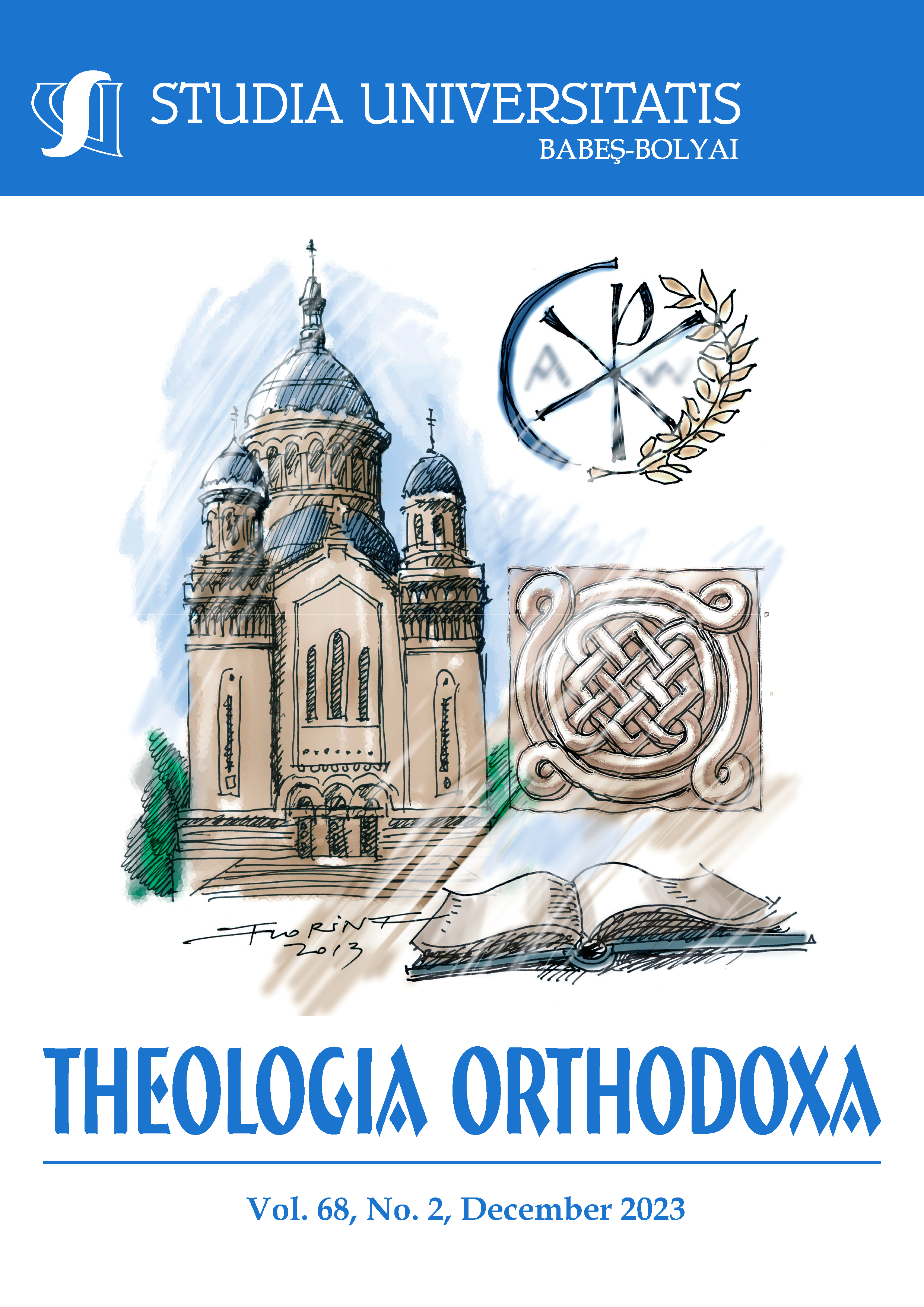The Pagans and the Tax Collector of the Gospel According to Matthew
DOI:
https://doi.org/10.24193/subbto.2023.2.03Keywords:
Pagans, Tax Collector, Jesus, Gentiles, Church, MatthewAbstract
The attitudinal complex existing among the groups of people mentioned by St. Matthew the Evangelist is strikingly similar to the situation existing in the Church before the Gentiles shared and inherited the Gospel. The clear distinction between “gentiles” and “publican” is not justified in the second part of the apostolic age, when the Gentiles were the majority in the Church. The belief that the Aramaic version of the Gospel of Matthew was written before the Apostolic Council is based on these everyday realities of the Jewish Christian world, revolving around the Temple, religious parties, rabbis, etc. Dating the writing after 70 AD, as presented in most modern commentaries, does not justify several verses mentioned only in the first canonical Gospel, including Mt 18:15-17. The erring brother may ultimately end up as a pagan and a publican. For the disciples, as for the Jewish Jerusalemite Christians, the Saviour's command was actual, something not at all necessary for later majority Jewish Christians. It would also justify taking the fragment from other Matthean sources or the hypothetical Q if it were to be found in other evangelists. It is just that it is the proper place of the Gospel of Matthew. That is why we consider the Gospel of Matthew to be the first writing of the New Testament in its Aramaic form, intended for Jewish Christians, constantly concerned with preserving ethnic purity and the Abrahamic heritage.References
Bultmann, Rudolf. The History of the Synoptic Tradition. New York: Harper & Row, 1968.
Burggraff, David, “Principles of Discipline in Matthew 18: 15-17.” Calvary Baptist Theological Journal 4 (1988): 1-23.
Cullmann, Oscar. The State in the New Testament. New York: Scribner's Sons, 1956.
Donahue, John. “Tax Collectors and Sinners: An Attempt at Identification.” The Catholic Biblical Quarterly (1971): 39-61.
Hanson, K.C. “The Galilean Fishing Economy and the Jesus Tradition.” Biblical Theology Bulletin 27 (1997): 99-111.
Iatan, Cristinel. “Teach me, and I will be silent” (Job 6:24). Scribes, scribes and teachers in the period of the two Temples.” Romanian Orthodox Old Testament Studies 1 (2022): 62-75.
Jackson, Glenna. “Enemies of Israel: Ruth and the Canaanite woman.” HTS: Theological Studies 59.3 (2003): 779-92.
Jastrow, Marcus. A Dictionary of the Targumim, the Talmud Bibli and Yerushalmi, and the Midrashic Literature, vol. 1. New York: Pardes, 1950.
Jeremias, Joachim, C. H. Cave, F. H. Cave. Jerusalem in the time of Jesus: an investigation into economic and social conditions during the New Testament period. London: Blackwell, 1969.
Lagrange, Marie-Joseph. Évangile selon saint Matthieu, Vol. 1. Paris: J. Gabalda, 1923.
Mihoc, Vasile. Predici exegetice la duminicile de peste an. Sibiu: Teofania, 2001.
Overman, J.A. Matthew's gospel and formative Judaism: The social world of the Matthean community. Minneapolis, MN: Fortress, 1990.
Pașca-Tușa, Stelian. “God's Mercy or Jonah's Anger? An Orthodox Approach to the Case of Nineveh.” Studia Universitatis Babes-Bolyai – Theologia Orthodoxa 1 (2020): 23-37.
Pașca-Tușa, Stelian. “Patriarhul Avraam – etalon de credință pentru creștini (Rom 4,17-25).” In Anuarul Facultății de Teologie Ortodoxă din Cluj-Napoca, tom XXII (2018-2019), 9-17. Edited by Vasile Stanciu. Cluj-Napoca: Renașterea, 2020.
Perrm, Norman. Rediscovering the Teaching of Jesus. New York: Row, 1967.
Resceanu, Ion. “Fasting in the Old Testament: a means of Penitence for restoring man's relationship with God.” Orthodox Theology in Dialogue (2021): 146-158.
Tomson, Peter. “Jewish food laws in early Christian community discourse.” Semeia-Missoula (1999): 193-214.
Walker, Wm. “Jesus and the Tax Collectors.” Journal of Biblical Literature 97.2 (1978): 221-38.
Downloads
Published
How to Cite
Issue
Section
License
Copyright (c) 2023 Studia Universitatis Babeș-Bolyai Theologia Orthodoxa

This work is licensed under a Creative Commons Attribution-NonCommercial-NoDerivatives 4.0 International License.





 ISSN (print): 1224-0869, ISSN (online): 2065-9474, ISSN-L: 2065-9474
ISSN (print): 1224-0869, ISSN (online): 2065-9474, ISSN-L: 2065-9474